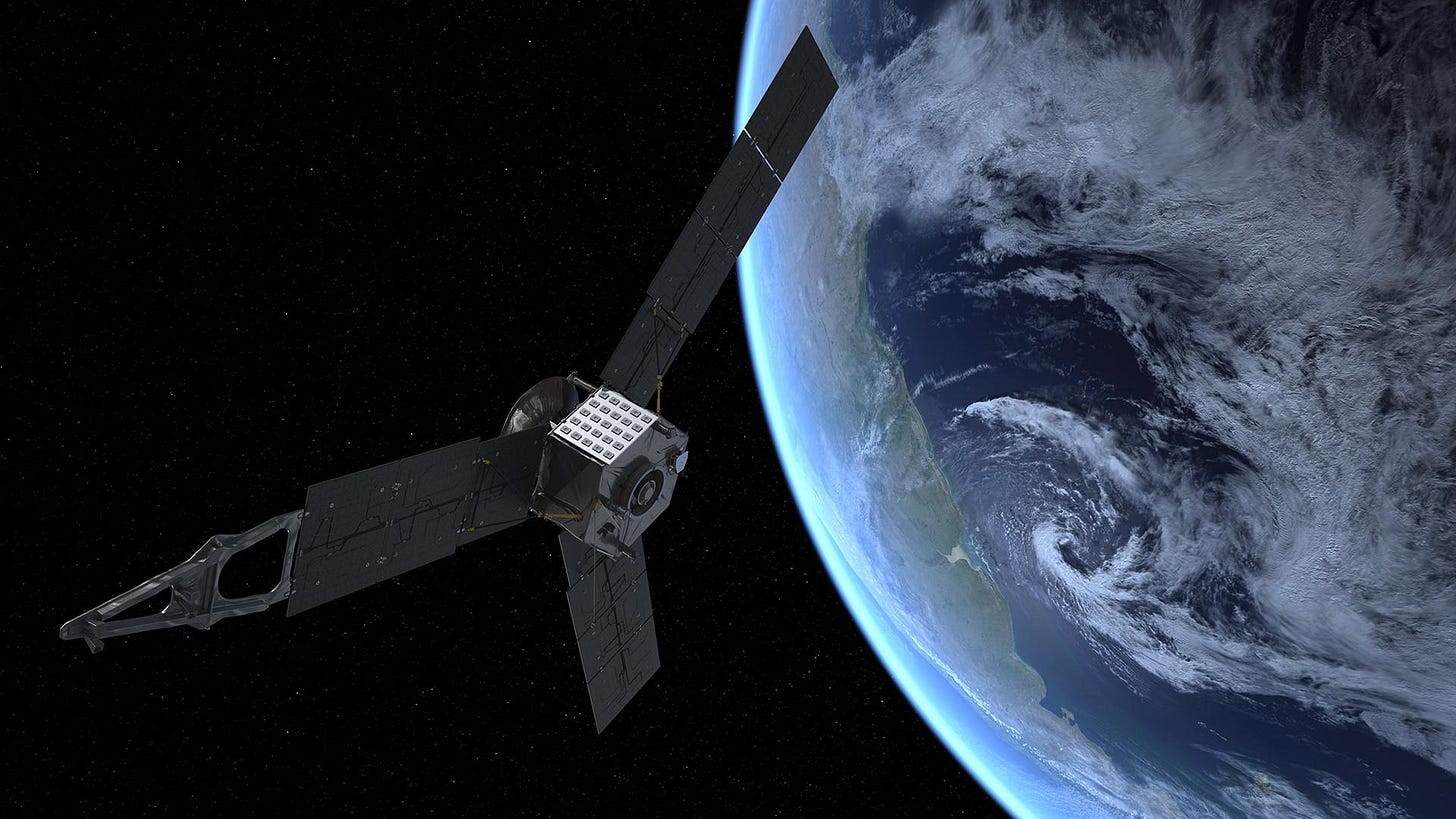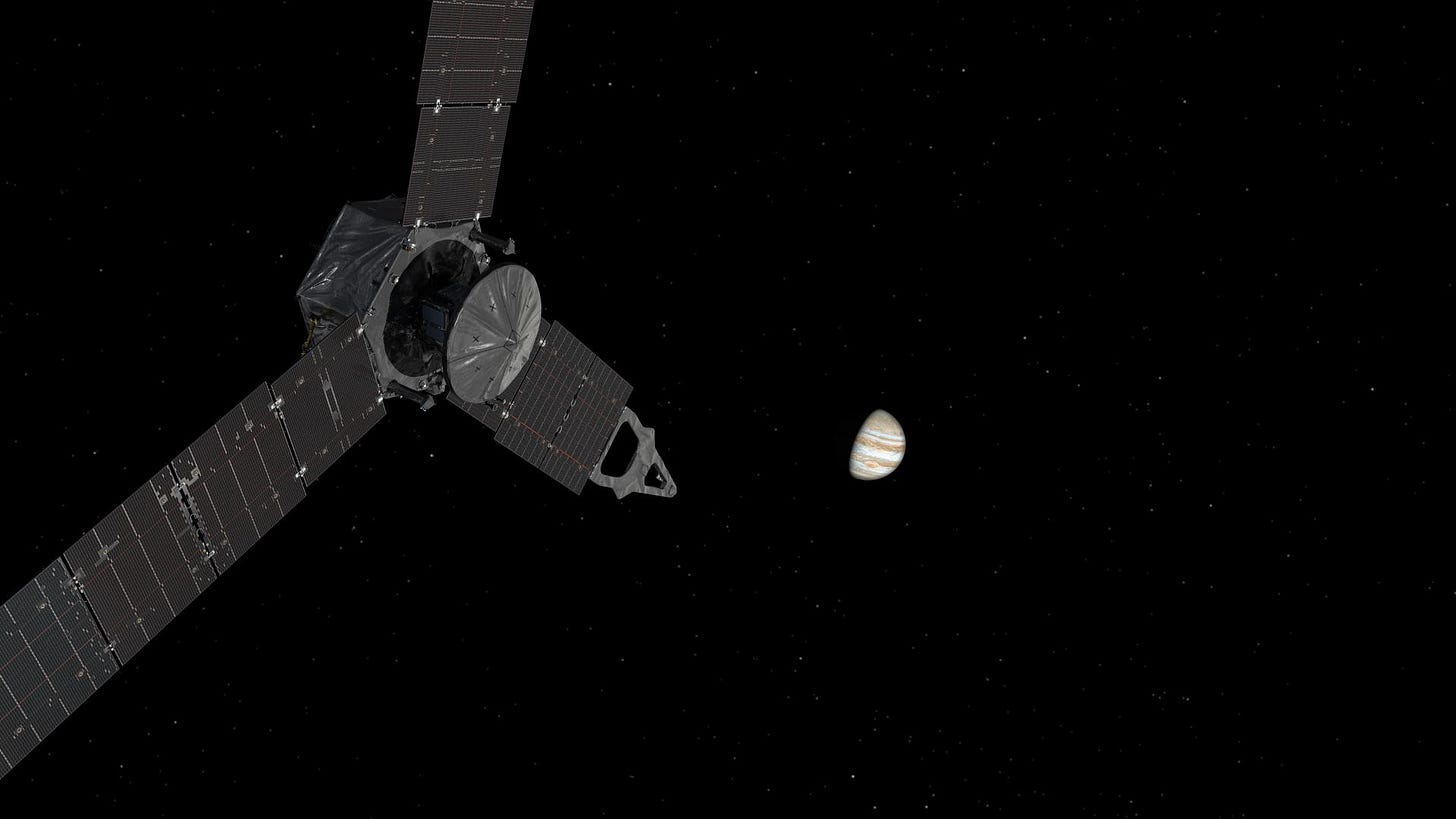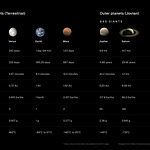Originally made for YouTube.
Image Courtesy: NASA/JPL-Caltech Content sourced from https://science.nasa.gov/ and https://www.perplexity.ai/
Juno is an orbiter spacecraft.
It will for the first time, see below Jupiter’s dense cover of clouds. This is why the mission was named after the Roman goddess, who was Jupiter’s wife, and who could also see through clouds.
Juno made one flyby of Earth to receive a boost from our planet's gravity that allowed the spacecraft to reach the planet Jupiter.
After a five-year journey, Juno is estimated to have covered 2.8 billion kilometers on its way to Jupiter.
It currently exploring the Jovian system, studying its composition, gravity, magnetic field, and other characteristics, while navigating the dangerous radiation in Jupiter's extensive magnetic field.
Juno has provided breathtaking images and made breakthrough discoveries about Jupiter and its moons.
Sincere thanks to all those who processed these magnificent images!
To download images, go here: https://photojournal.jpl.nasa.gov/gallery/snt
And type the PIAxxxxxA few things about Jupiter
Before exploring the images captured by the Juno spacecraft, it's beneficial to grasp a basic understanding of Jupiter. As the largest planet in our solar system, Jupiter is renowned for its unique characteristics. Take a moment and please read through.
The first probe to ever peer beneath the gas giant's thick cloud cover. Witness swirling storms, vibrant colors, and otherworldly landscapes you never knew existed.
Pioneer 10 and 11 and Voyager 1 and 2 were the first to fly by Jupiter in the 1970s, and since then we’ve sent Galileo to orbit the gas giant and drop a probe into its atmosphere. Cassini took detailed photos of Jupiter on its way to neighboring Saturn, as did New Horizons on its quest for Pluto and the Kuiper Belt. And then Juno, Next is Europa Clipper.
Jupiter Icy Moons Explorer (Juice) is a spacecraft that will study Jupiter and its moons. The spacecraft was launched on April 14, 2023, expected to arrive at Jupiter in July 2031 and ultimately enter orbit around Ganymede in December 2034 for a more in-depth investigation.
Images included
01) Jupiter's South Temperate Belt
02) White Spot Z
03) NASA's Juno Mission Reveals Jupiter's Complex Colors
04) NASA's Juno Mission Captures Images of Europa
05) NASA's Juno Mission Captures Swirls in Jovian Storms
06) NASA's Juno Views Northern Cyclones on Jupiter
07) NASA's Juno Mission Observes High-Altitude Hazes in Jupiter's atmosphere
08) Jupiter's Bands of Color
09) Jupiter Blues
10) Jupiter's South Equatorial Region
11) Jovian White Oval
12) Jupiter: A New Point of View
13) Jupiter's Great Red Spot: Both Deep and Wide
14) Jovian Cloud Tops
15) High-Altitude Hazes on Jupiter
16) Massive Beauty
17) Mocha Swirls in Jupiter's Turbulent Atmosphere
18) Tumultuous Clouds of Jupiter
19) Jupiter Abyss
20) Jupiter's Belts and Zones
21) Jupiter's Equatorial Zone
22) Jupiter's Stunning Southern Hemisphere
23) Jupiter Swirling Storms
24) Juno Captures Moon Shadow on Jupiter
25) Soaring Over Jupiter
26) Southern Hemisphere Views
27) Deep Jet Streams in Jupiter's Atmosphere
28) Jupiter Storm of the High North
29) Storm on the Horizon
30) When Jupiter's Clouds Pop Up
31) Dark Spot and Jovian 'Galaxy"
32) Giant Storms and High Clouds
33) Jovian Jet Stream
34) NASA's Juno Mission Spies Vortices Near Jupiter's North Pole
35) Clouds Stack Up in Jupiter's North Equatorial Belt
36) Jovian Tapestry
37) Jovian Vortex View
38) Jupiter's Swirling Cloud Formations
39) Jupiter Marble
40) Jovian Tempest
41) High Above Jupiter's Clouds
42) Colors on the Wind
43) Jupiter's Colorful Cloud Belts
44) Jupiter's Bands of Clouds
45) The Great Red Spot - A colossal storm larger than Earth, raging for centuries.
46) Dramatic Jupiter
47) Jovian Close Encounter
48) Jupiter's Racing Stripes
49) Clyde's Spot on Jupiter
50) Jupiter Marble
Related video
NASA’s Webb Depicts Staggering Structure in 19 Nearby Spiral Galaxies / JAN 29, 2024
















Share this post